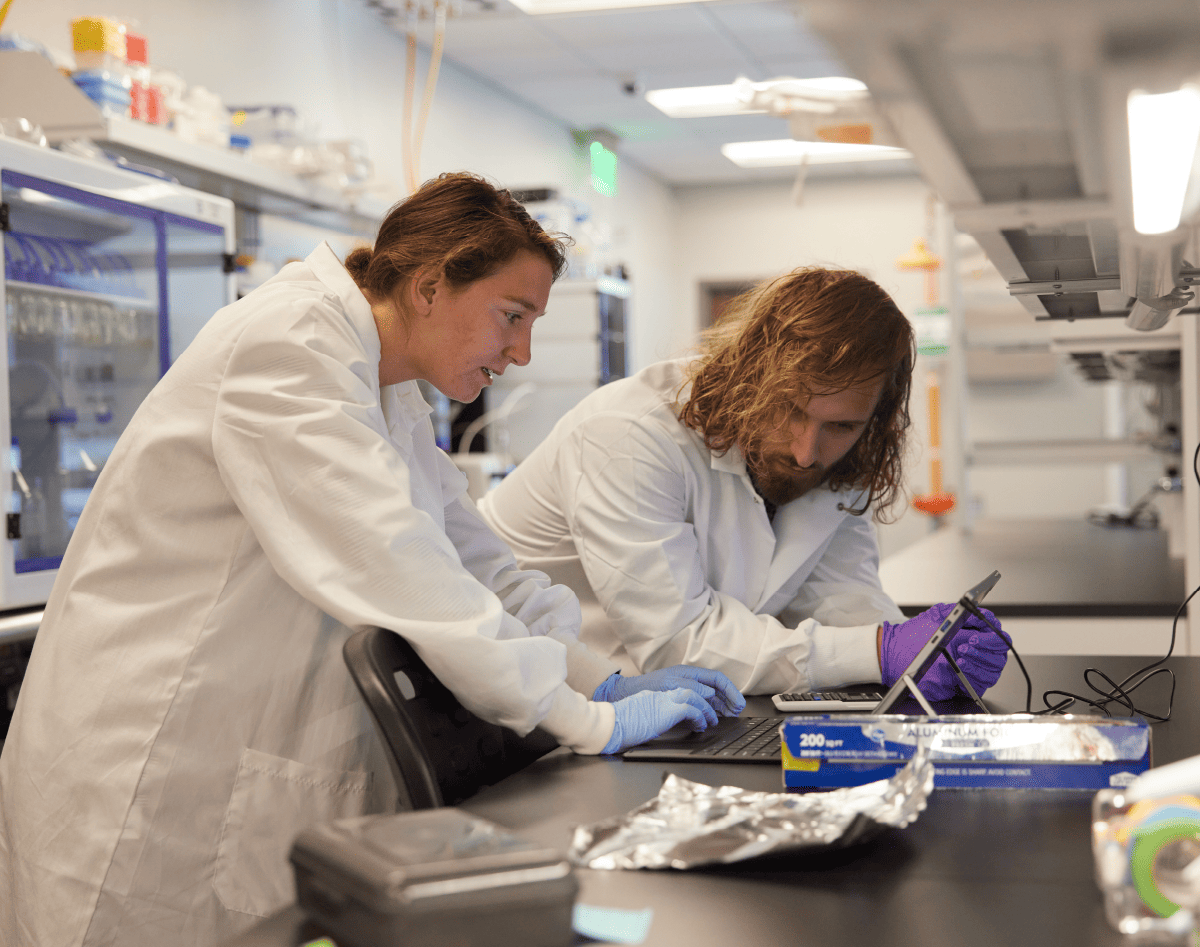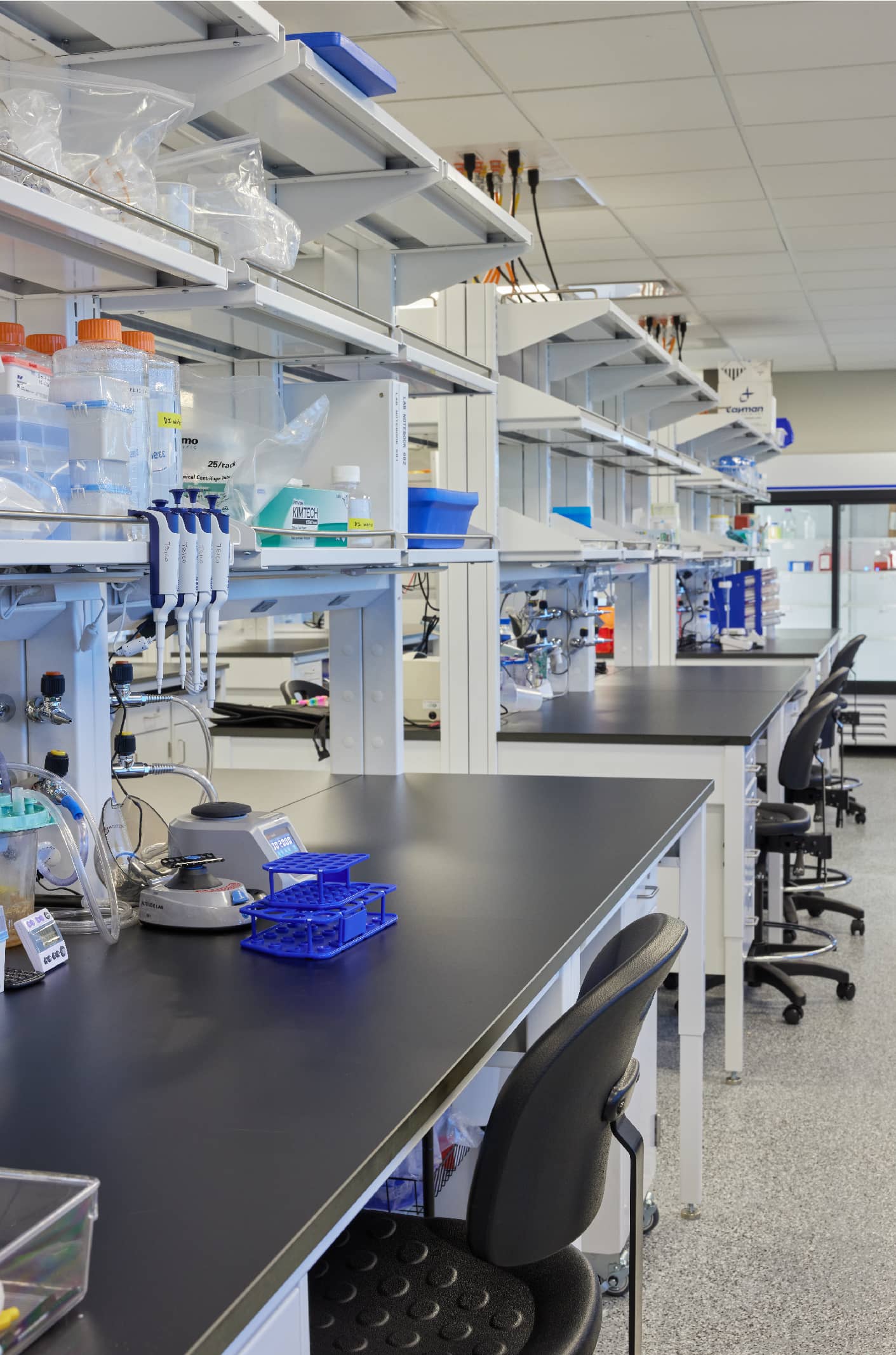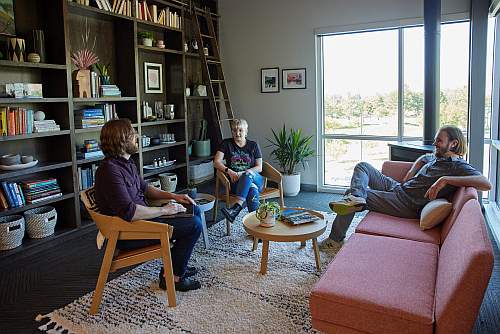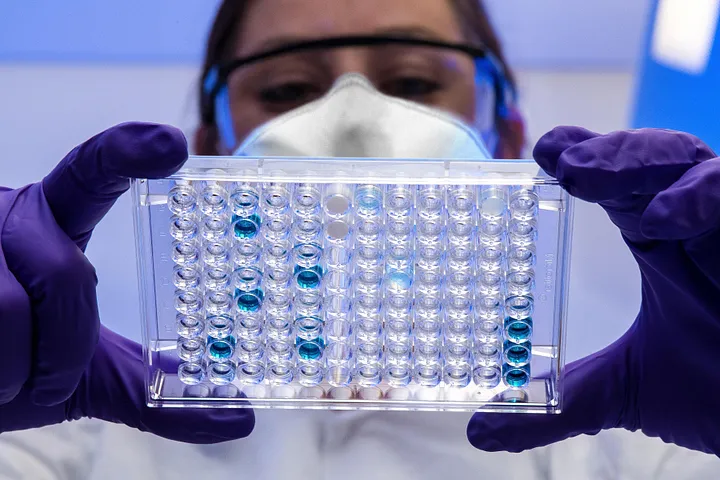News
Altitude Lab Grows Biotech Startups
Altitude Lab is much more than a coworking space, Haque told TechBuzz in a recent interview. Although it offers offices, conference rooms and desks, it also provides the startups with...

By Jenny Rollins
A lot of things grow in biotech labs: plants, cells, cultures. But Altitude Lab in Utah is growing something different—homegrown Utah biotech startups.
The incubator program, based in Recursion's old headquarters located in Research Park in Salt Lake City, takes in Life Science startups for 24 months with the goal of getting each one of them seed funded by 18 months and expanded to their own headquarters by the end of the program.
Altitude Lab's 2021 cohort of startups comprise 70% of all funding coming into Utah life science companies, according to Altitude’s executive director Chandana Haque. Last year also saw $54 million in seed financing, a record high for Utah.
Altitude Lab is much more than a coworking space, Haque told TechBuzz in a recent interview. Although it offers offices, conference rooms and desks, it also provides the startups with a large lab with a million dollars of equipment – both molecular and cell and tissue culture.

The program partners with University of Utah and Utah-based biotech giant Recursion to manage the maintenance and the overhead of the lab so the companies can focus on meeting their developmental milestones instead of real estate and security.
The program has ten companies at the moment. It is operating at about half capacity. Haque said that they are actively recruiting more companies to join.
Altitude Lab helps educate the startup CEOs and founders about investor relationships and networking, developing the business acumen to operate in the field, and basic business operation independent of the program.
The goal is for the companies to reach the right milestones to attract investors. Every month, the program brings in institutional investors from across the country to meet the teams to help mentor them and develop relationships early. There’s also an annual demo day during which Altitude brings in 80 investors to meet the teams and see demonstrations of their products and work.
Haque explained that the program also provides a lot of education on “the tribal nature of biotech.” Unlike a lot of other branches of tech, biotech is “not something you can YouTube,” she said. Which means the program recruits mentors to help the teams understand what they need to do to raise money and clear regulatory processes.
Most biotech companies don’t sell their drug directly to patients. Instead, they work through partners. Haque cited the example of startup BioNTech that partnered with Pfizer to develop and distribute COVID-19 Omicron vaccines. Part of the Altitude Lab program is helping their companies find business partners.
The backstory

Chris Gibson, CEO and co-founder of Recursion, noticed the need for an incubator like this when he was first building the company during his MD/PhD work in the lab of Dean Li, Recursion co-founder and president of the Merck Research Labs.
He learned that, from a startup standpoint, biotech is a lot more capital intensive than some other startups because founders need labs with millions of dollars of tech, along with maintenance, safety, and regulation of those labs. The companies also need to hire expensive talent with high levels of specific experience.
And that’s just to get off the ground.
So when Haque and Gibson connected in 2018, they realized a mutual goal of creating a space to help biotech entrepreneurs get started in Utah.
“We were trying very much to build a place that's much more accessible for folks who want to try building a startup. So we've reduced the real estate barrier, the technology barrier, and now I'm trying to reduce the knowledge barrier,” Haque said.
She explained that they built Altitude in 2020 as a public private partnership with the university and Recursion in order to create a community, “an ecosystem for life science entrepreneurship.”
University spin-outs
The program’s sponsor from the University of Utah is Keith Marmer, Chief Innovation and Economic Engagement Officer of the Partners for Innovation, Ventures, Outreach & Technology (PIVOT) Center at the university. He’s also on the Altitude Lab board.
The University of Utah works through Altitude to collaborate with and support startups that then build and commercialize tech and spin out of the university.
While the companies go through the program, they also do licensing negotiations with the university, which decides what portion of equity and royalties will go to the university.
“I think what the University of Utah and Keith has really established is how to be as founder friendly as possible,” Haque said.
Salt Lake City: a new hotspot for biotech?
Since the COVID-19 pandemic began, there has been a national trend converting retail space into life science biotech space, which are arguably a safer bet as high-revenue, venture-backed industries. Now Salt Lake City is following that trend.

The premiere mall of the 2002 Winter Olympics is now slowly being converted into a biotech space with an office park vibe, including HallPass, a huge cafeteria-style lunch space. And this repurposed mall is serving as a microcosm of Utah’s increasing reputation as being a biotech hub. Altitude Lab is already making significant progress toward the goal of growing the biotech entrepreneurship community in Utah.
Haque recently spoke to Doug Clark, managing partner at Wilson Sonsini Goodrich & Rosati, who said that Utah will have 80-100 financings in life science every year within the next two to three years.
“They’re fairly confident that Utah would be a top five life science hub in the country very soon, within five years,” she said.

















.jpg)





